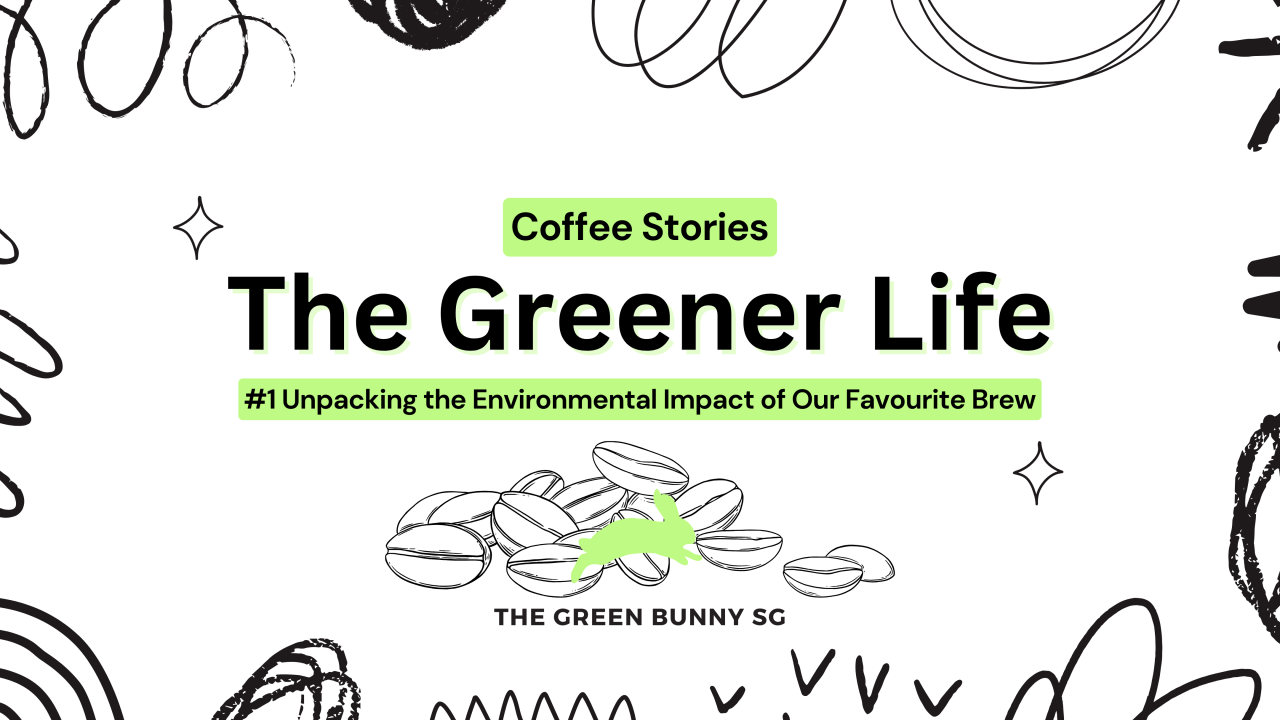
Coffee Stories: Unpacking the Environmental Impact of Our Favourite Brew
As I started my day with my daily cup of coffee, a thought struck me: what are the environmental and social impacts of our coffee consumption?
This curiosity sparked the idea for The Greener Life series. It made me realize that in order to make better decisions about our everyday habits, we need to be informed about what we consume. And what better way to start this journey than with a cup of coffee?
In the first episode of Coffee Stories, let's dive into the environmental impact of coffee production. As one of the world’s most traded commodities, coffee has a significant environmental footprint, which can be broken down into four key areas:
1. Deforestation & Land Use
Coffee farming is a major driver of deforestation in Central and South America. Over the past two decades, approximately 2.5 million hectares of tropical forest have been cleared to make way for coffee plantations. This deforestation has serious consequences for biodiversity and climate regulation.
2. Water Use
Producing coffee is water-intensive. On average, it takes about 140 liters of water to produce a single cup of coffee. This high water usage can strain local water resources, leading to shortages that affect both communities and ecosystems.
3. Biodiversity
Monoculture coffee farming, which involves growing a single crop over a large area, reduces local biodiversity. This practice makes coffee plants more vulnerable to pests and diseases, often resulting in increased pesticide use to manage these problems.
领英推荐
4. Carbon Emissions
From cultivation to your cup, coffee production emits around 15.3 million tons of CO2 annually. The major sources of these emissions include land use changes, coffee processing, and transportation.
Sustainable practices in coffee production aim to mitigate these environmental impacts. In the next episode of Coffee Stories, we'll explore these sustainable practices and discuss their relevance to us as consumers. Stay tuned to learn how we can make more eco-friendly choices with our daily brew.
References:
Subscribe to Serious Notes Newsletter on LinkedIn.
Disclaimer: The content of this article is informational only. Nothing in this note shall constitute legal, investment or professional advice.
Read?the other editions of Serious Notes on LinkedIn:
Green is a Trendy Word; ESG Premium in M&A; A Moral Practical Dilemma; A Case of Reusables; Is Poverty Real in Singapore?; Conservation & Choices; Female Entrepreneurship - Unique Opportunities & Challenges; ESG for SMEs in Singapore? S Integration & Implementation I - How to Think about Impact Integration in Social Enterprise; Let's Talk about Governance; The Social Aspects of ESG — Where Every Organization Finds a Soul; Carbon Credits — Quality Matters; On Greenwashing: Greenwashing Behaviours to Avoid as an Organization; Why I Still Believe in Blockchain; Chat GPT is Not Your Best Friend Yet — and Here is Why; Living a Colourful Life; Carbon Taxes & Credits — An Introduction; 3 Reasons Why Every Business Should Incorporate Sustainability; Master of None — Reflections on Tips to Becoming a Successful Generalist;The Fool-Proof Guide to Setting up an ESG Framework & Policy for Businesses, Investors and Investment Managers, Part 1 of 5; Gone with the Red — Ep.1; My footprints 2022;